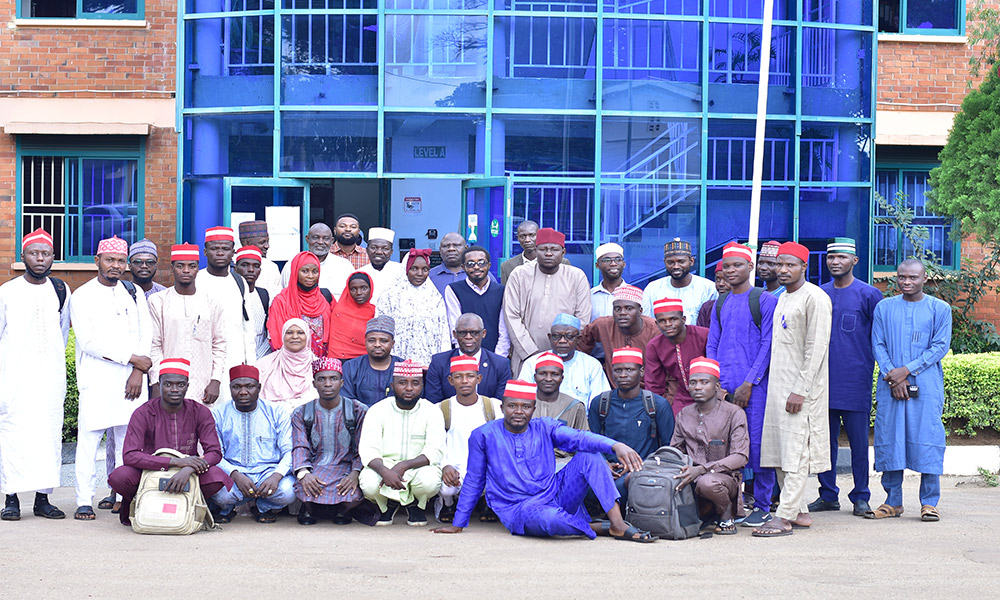An investment in expertise pays the most effective interest. The value of education and learning to a country can not more than highlighted, in the majority of parts of the globe education is considered as a fundamental human right. Education and learning is among the standard standards to gauge the development and development of any kind of nation.
Regretfully the degree, high quality and standard of education in Nigeria has actually observed a geometric decrease in the past two decades and this regrettable pattern has actually made Nigeria the leading country of origin of pupils from Africa moving to other parts of the globe in search of top quality education and learning.
This fall in requirement has actually been credited to a variety of aspects which will be appropriately highlighted in this short article. Out of the many problems dealing with education and learning in Nigeria, the adhering to are the significant obstacles:
1. BAD FINANCING
Education and learning in Nigeria is managed by the Ministry Of Education. Regional authorities take obligation for applying policy for state-controlled public education and state institutions at a regional degree. This makes funding of education generally a governmental event.
Read here cnbcafrica.com/2019/nigerias-higher-education-sector-faces-a-number-of-issues-heres-how-the-west-african-country-can-do-to-fix-it/ At our site
As a result of the lengthy existing high level of corruption in all levels of federal government, education in Nigeria has constantly experienced inappropriate financing which has resulted in bad facilities, lack of excellent teaching aids, and non payment of educators allocations.
Likewise, a sharp decline in crude oil prices which is the significant resource of government earnings has actually dropped the nation into an economic crisis which has brought about severe cuts in federal government costs, additional aggravating the inadequate financing scenario of Nigerias education system. This has caused strike activities, school closure and massive students demonstrations around the country. The monetary crisis likewise ran out scholarship funds for international research study, positioning restrictions on global trainee flow from Nigeria.
2. ABSENCE OF QUALIFIED INSTRUCTORS:
In Nigeria, the bad functioning problem, bad pay and allowances the instructors undergo have dissuaded capable and competent instructors from occupying teaching jobs, they rather apply for other much better paying jobs than mentor, while minority teachers that have actually taken up the training occupation did so because of absence of much better jobs, therefore, their low degree of devotion as they are always on the keep an eye out for greener pastures.
This straight influences result as the high quality of education is drastically minimized by this menace.
3. ABSENCE OF CONTINUAL TRAINING FOR INSTRUCTORS:
Ample procedures are not taken by the ministry of education and learning to make certain that every instructor undergoes a continuous regular training program to maintain them harmonic with modern-day practices and also help to renovate their correlation with their trainees and the trainees guardians.
4. FAILING TO FIT THE RISING POPULATION NEEDS:
The overall populace of Nigeria as at independence stands at 45.2 million, however this isnt the instance now as the nation has witnessed a huge increase in its populace. As at 2015, Nigeria s population was approximated to be 182.2 million, this is a significant problem for the nation as the education and learning system have actually not had the ability to fully enlist its quickly climbing population.
For example, Nigerias standard education sector is loaded down by solid population growth. In 2015, the nations populace under the age of 15 had to do with 44 percent. The system stops working to integrate large parts of this expanding youth population.
According to the United Nations, 8.73 million elementary school- aged children in 2010 did not take part in education in all, the majority of which were the almajiri youngsters. They comprise the biggest group of out-of- school children in Nigeria. These young boys are sent to Quranic instructors to receive an Islamic education, that includes employment or instruction training.
Some are involved in road begging. The Ministry of Education approximated that there were 9.5 million almajiri youngsters in the north part of the nation in 2010, making Nigeria the nation with the highest variety of out-of-school youngsters on the planet.
The internet enrollment price at the elementary level was 63.8 percent compared to a global average of 88.8 percent. This reduced price of enrollment to standard education in Nigeria has better increased illiteracy level in Nigeria.
The nation in 2015 had a youth literacy rate of 72.8 percent and a grown-up proficiency price of 59.6 percent compared to international prices of 90.6 percent and 85.3 percent in 2010 respectively (data reported by the Globe Bank).
5. LOW COLLEGE ADMISSION CAPABILITY:
According to the data JAMB offers on its website, In 2015, just 415,500 out of 1.428,379 candidates were confessed to college.
The admission dilemma is just one of Nigerias most significant obstacle in higher education, because of the expanding youth population.
Nigerias system of education currently leaves over a million certified college admission applicant without access to university education on an annual basis. This tends to decrease financial development as only a few educated specialists are available in the country, it additionally causes brain drain.
6. ACADEMIC FRAUDULENCE, CORRUPTION AND INDISCIPLINE:
In Nigeria, there have been numerous reports of corruption and indiscipline in Nigerias education system, the majority of specifically in the higher organizations where instances of cultism in schools have actually been on the increase as well as bribery to pass examinations.
Academic fraudulence is native to the island whatsoever degrees of education. Other kinds of scholastic transgressions that has actually pestered the Nigerian education system ranges from dishonesty throughout evaluations to more significant inglorious acts such as impersonation, falsifying scholastic records, spending for grades or certificates with presents, cash or sexual favours, terrorising inspectors and assaulting invigilators e.t.c.
7. BAD CRITERIA OF LIVING AND POOR GOVERNANCE:
The problem of bad governance associated with the majority of African countries with Nigeria inclusive has actually also impacted the development of education in Nigeria as the continous bad governance has also raised the degree of poverty in the nation.
Lots of poverty-stricken parents are unable to send their wards to institution as a result of the challenge and inability to meet the college charges. Likewise, the federal government hasnt had the ability to totally supply on its promises of free basic education and learning to its people.
8. POLITICIZATION EDUCATION:
In Nigeria, politicization of education is one more problem. In some establishments, situations where tribal and political affiliations affects admission and work procedures have been reported.
This is not a great precedence as it rejects those who are appropriately certified job opportunity or chance to research. These and many more are the challenges encountering the education system in Nigeria. The above problems if appropriately taken on will help set the Nigerian academic system on the right track.

